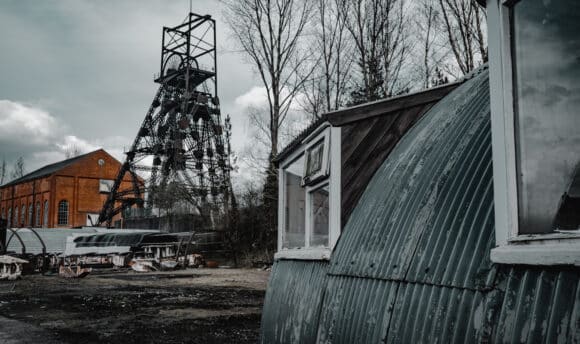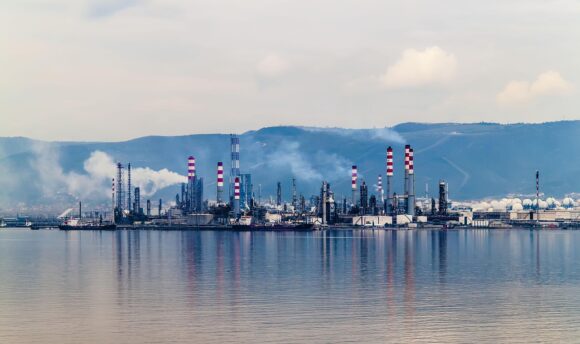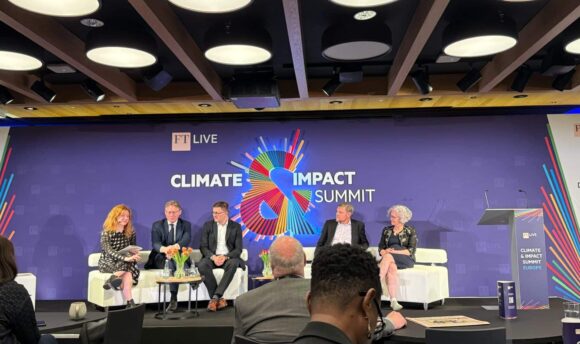At a time when every effort should be made to wean the world from fossil fuels, German company RWE announced that it intends to begin the clearance of the ancient forest of Hambach from 14 October 2018, in order to expand Europe’s largest open-pit mine, the Hambach lignite mine.
This is an astonishing move considering the German government itself has set up a multi-stakeholder commission with a mandate to agree on a timetable and deadline for a full phase-out of coal. With this move, RWE has declared it has no intention to wait.
RWE is Europe’s biggest polluter: Its coal plants emitted 111 million tons of CO2 in 2017, and it is estimated they caused 1855 premature deaths in 2015 alone. RWE’s coal business in Hambach and surrounding area is a study in devastation: The company has bulldozed 90% of the Hambach Forest – one of the few ancient forests left in Europe – and its mining activity in the area has resulted in the forced displacement of 30,000 people in the last four decades.
The mine expansion would destroy the remaining 10% of Hambach forest, and fuel two of Europe’s most polluting coal plants, Niederaussem and Neurath. These two plants together have caused an estimated 800 premature deaths a year, and most of their units will have to be closed by 2020 if the coal commission’s decisions are to align with climate science. It makes no sense to destroy an ancient forest to supply coal to two polluting power plants on the verge of being shut.
In this swirl of activity, one sector has the power to put a halt to this lunacy: the insurance industry. European insurers must show they are serious about tackling climate change and supporting the coal phase-out. NGO partners of the Insure Our Future campaign have called on insurers in a letter to publicly refuse to support to RWE and its mining projects.
The Hambach mine and RWE could not operate without insurance. And while some insurance companies, including Generali, Mapfre and Talanx (which owns TUiR Warta and Hannover RE), haven’t yet committed to denying insurance coverage for coal projects and coal companies, many others are restricting their insurance coverage for coal, including Allianz, AXA, Munich Re, Zurich, SCOR and Swiss Re.
However, policy loopholes could currently play in favor of RWE and allow the Hambach mine to retain insurance coverage from most of these insurers and reinsurers. Allianz, AXA, SCOR, Munich Re and Zurich have adopted policies that rule out coal from all stand-alone insurance or facultative reinsurance but can still offer cover coal projects through insurance packages and treaty reinsurance.
In response to the letter from NGOs, AXA reiterated its current policy, ruling out the Hambach mine expansion from insurance coverage. However, AXA failed to guarantee they would not insure the existing mine.
At the bottom of the pile, Zurich and Munich Re’s policies only apply to future mines, leaving current operations untouched. As a consequence, while some insurers might not underwrite the expansion of Hambach, all can still cover the risks linked to the Hambach mine.
Moreover, policies at the corporate level are stained by double standards. Allianz, AXA, Generali, Hannover Re, Munich Re, SCOR, all divested RWE from their own portfolio because of the company’s high exposure to coal and its presence in urgewald’s list of 120 coal plant developers. However, none excluded the company from underwriting support. Similarly, all of them acknowledged, alongside over 280 other investors with $26 trillion combined assets under management, the need for a complete coal phase-out by 2030 in the EU in order to meet the goals of the Paris Agreement.
Former CEO of RWE’s power plant division, Matthias Hartung, has stated “The time of lignite has not come to an end!”. Therefore, insurers who support RWE’s ambitions to operate a lignite mine until 2050 will face permanent reputational damage and loss of credibility as their flagrant double standards come to light.
Unsurprisingly, plans to expand the Hambach mine have engendered fierce resistance and reaction from all sides. Both national and international media have criticized clearing the ancient forest and the massive police operations already in motion. The recent death of a journalist reporting from the field has only shaken the country further. NGOs and the inhabitants of the surrounding villages oppose the expansion, and many are calling on RWE to back down, including Germany’s Minister of the Environment, the North Rhine-Westphalian police union, and the bank Dekabank, one of RWE’s top shareholders.
Several rental companies have now publicly refused to provide their heavy machinery for the ongoing RWE and police forest clearance preparations. A public call to boycott RWE & its affiliate companies such as Innogy has been launched, with renewable electricity providers beginning to a report an uptake in new contracts. It’s time for insurers to follow and also exclude Europe’s lignite giant from all types of coverage.



